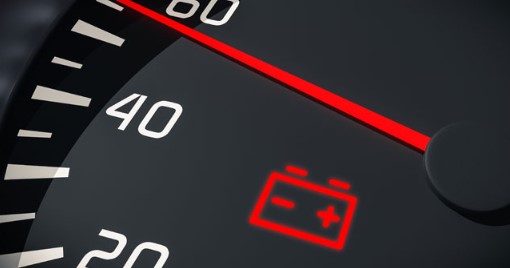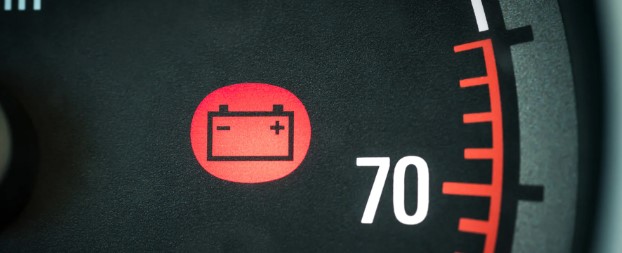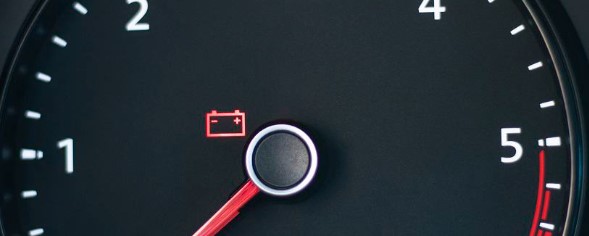After you’ve changed the battery in your car, you’ll need to deal with the consequences. One of these is that the warning lights on your dashboard will come on. It’s normal for some of them to stay on for a while. But if they don’t go off after a day or two, there could be a problem.
In this blog post, we’ll take a look at what you should do if the warning lights after changing the battery Vw. We’ll also talk about what some of the most common warning lights mean.
Why Vw Warning Lights Come On After Changing Battery?

It is not uncommon for warning lights to come on after changing a battery, especially in VW cars. There are a few reasons why this may happen:
- The new battery may not be properly connected. Check the terminals to make sure they are tight and clean.
- The new battery may not be compatible with the car. Some VW models require special batteries, so be sure to check with your dealer or mechanic before purchasing a replacement.
- The car’s computer may need to be reset after the battery change. This can usually be done by disconnecting the negative terminal of the old battery for 30 seconds, then reconnecting it and starting the car.
What is the Battery Charge Warning Light Mean?

The battery charge warning light is a dashboard indicator that lets you know when your vehicle’s battery is running low. This can happen for a number of reasons, such as leaving the lights on or not starting the engine regularly. When this light comes on, it’s important to take action to avoid being stranded with a dead battery.
There are two different types of battery charge warning lights: red and yellow. A red light indicates a more serious problem, while a yellow light means the issue is less severe. If you see a red light, it’s important to stop driving and seek help right away. Continuing to drive could damage your alternator, which is needed to recharge the battery.
If you see a yellow light, you still need to take action, but you may be able to make it to your destination without too much trouble. It’s best to find a safe place to pull over and turn off any unnecessary electronics in your vehicle (like the radio) until you can get the issue resolved. You may be ableto recharge the battery using jumper cables or by driving around for awhile; however, if the problem persists, it’s best to call for roadside assistance or have the car towed to a nearby service station.

When to change the battery in a Volkswagen?

If your Volkswagen is starting to have trouble starting up, it might be time to change the battery. A dead or dying battery is one of the most common reasons why a car won’t start.
If you notice that your car is taking longer to start than usual, or if it’s making strange clicking noises when you turn the key, these are both signs that your battery is on its way out.
Another telltale sign is dimming headlights. If your headlights seem weaker than they used to be, it’s a good indication that your battery isn’t able to provide as much power as it used to.
If you’re unsure whether or not your battery needs to be changed, you can always take it to a qualified mechanic or dealership for a diagnosis. They’ll be able to tell you definitively whether or not your battery needs to be replaced.
If you see any warning lights after changing your battery in your VW, don’t panic! These are just a normal part of the process and will go away on their own after a little while. In the meantime, continue to drive as usual and keep an eye on the lights. If they don’t go away after a few days or if they start to interfere with your driving, then be sure to take your car to a mechanic so they can check it out.
FAQs About Warning Lights After Changing Battery Vw
Can replacing car battery cause electrical problems?
Replacing or disconnecting a battery on a computer-equipped vehicle can cause serious complications. These problems can range from starting issues to a loss of power accessory functions, such as door windows and sunroofs. In some cases, false warning lights may be triggered or electronic modules could become damaged. It is important that any work involving the replacement or disconnection of the battery on such vehicles is done with caution to ensure no long-term damage is caused.
Do I need to reprogram my car after battery replacement?
Under typical conditions, resetting the car’s computer is all that needs to be done in order to restore the ECU back to its ideal settings. The ECU will reprogram itself over time as it is used; no further action beyond simply driving the vehicle is necessary.
Do Volkswagen batteries need to be programmed?
Battery registration is a programming procedure required after swapping out the 12-volt battery in certain car makes such as BMW, Volkswagen, and Audi. This process serves to inform the vehicle’s electrical system that there has been a new battery installation. Battery registration helps ensure that the vehicle remains functioning optimally with its newly installed battery.

Battery warning light on permanently but battery charging. Garage confirmed this. New alternator fitted as well. Will this cause not failure?
While it’s a positive sign that your battery is charging and you have a new alternator, the illuminated battery warning light indicates that there might still be an issue with the electrical system. This could be due to a faulty voltage regulator, damaged wiring or connectors, or an issue with the instrument cluster itself.
Since the garage has confirmed that the battery is charging, it’s essential to investigate further to identify the root.
Once the issue with the battery warning light has been diagnosed and addressed, it is crucial to keep an eye on your vehicle’s electrical system to ensure that no other problems arise. Regular maintenance and check-ups are essential for keeping your vehicle in good working condition.
Here are some tips for maintaining your vehicle’s electrical system:
Regularly check the battery: Inspect the battery terminals for any signs of corrosion, and ensure they are clean and tight. Check the battery’s electrolyte level (if applicable) and top it up with distilled water if needed. Make sure the battery is securely mounted in its housing.
Inspect the alternator belt: Periodically check the condition and tension of the alternator belt. A worn or loose belt can cause reduced alternator output, which can affect your vehicle’s electrical system.
Keep an eye on the dashboard warning lights: If any warning lights are illuminated, address the issue promptly to avoid further complications.
Check the fuses: Regularly inspect the fuses for any signs of wear or damage, and replace them as necessary.
Inspect the wiring: Check for any signs of damage, fraying, or wear in the wiring and connectors. Repair or replace any damaged components as needed.
Schedule regular maintenance: Adhere to your vehicle manufacturer’s recommended maintenance schedule. This includes oil changes, filter replacements, and other services that can help maintain your vehicle’s electrical system.
Address any issues promptly: If you notice any signs of electrical issues, such as flickering lights, inconsistent power output, or unusual noises, consult a mechanic immediately to diagnose and fix the problem.
By following these tips and addressing any issues with your vehicle’s electrical system promptly, you can help ensure that your car remains reliable and safe to drive.